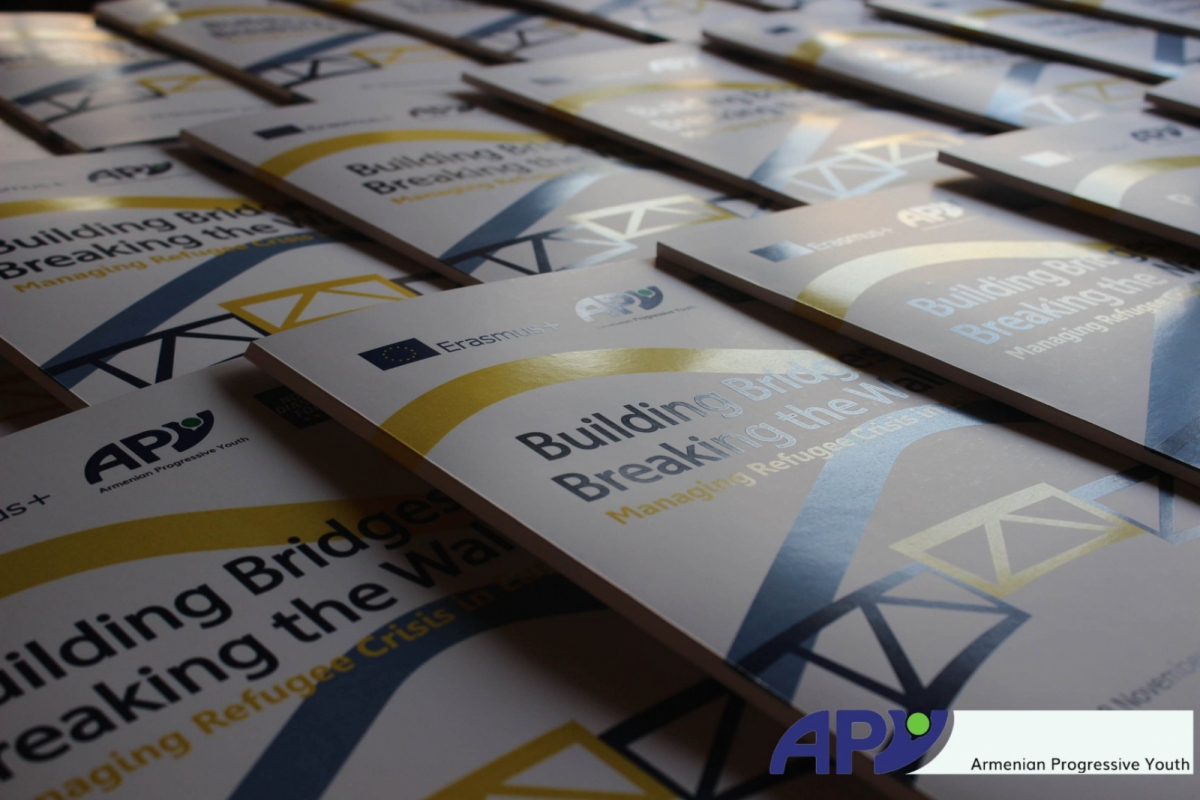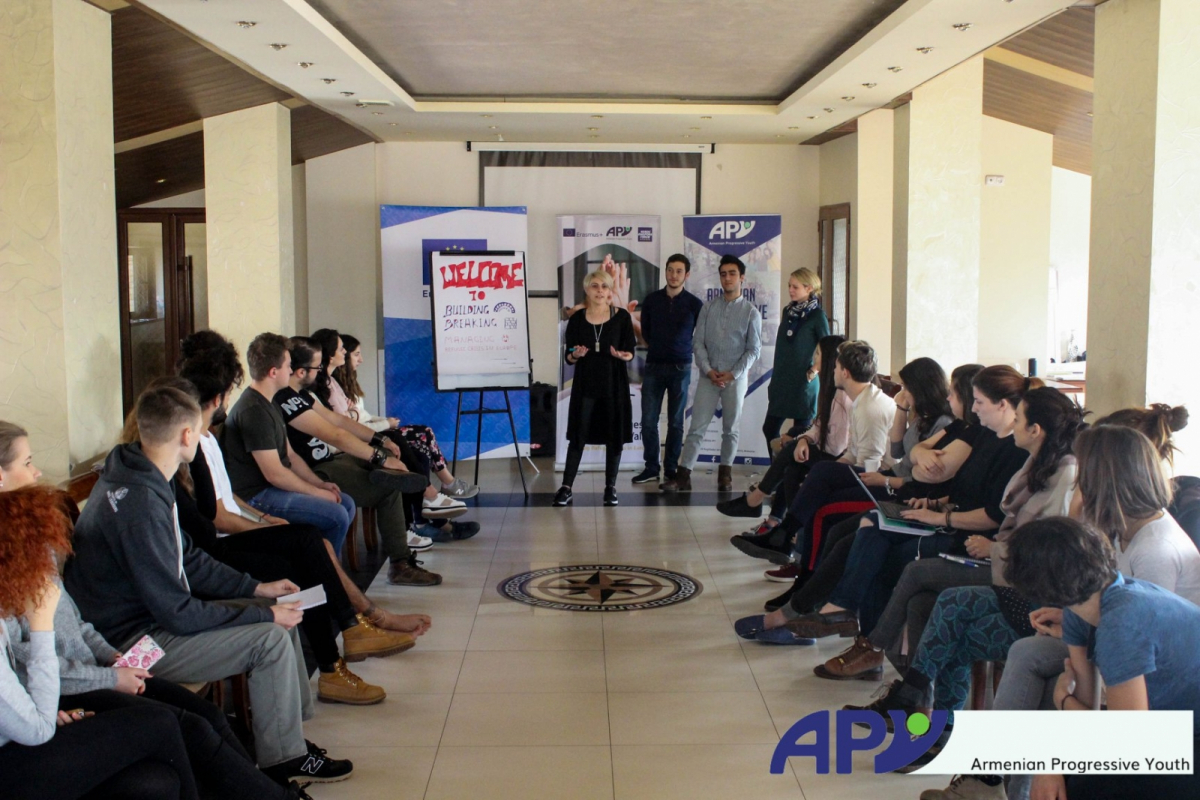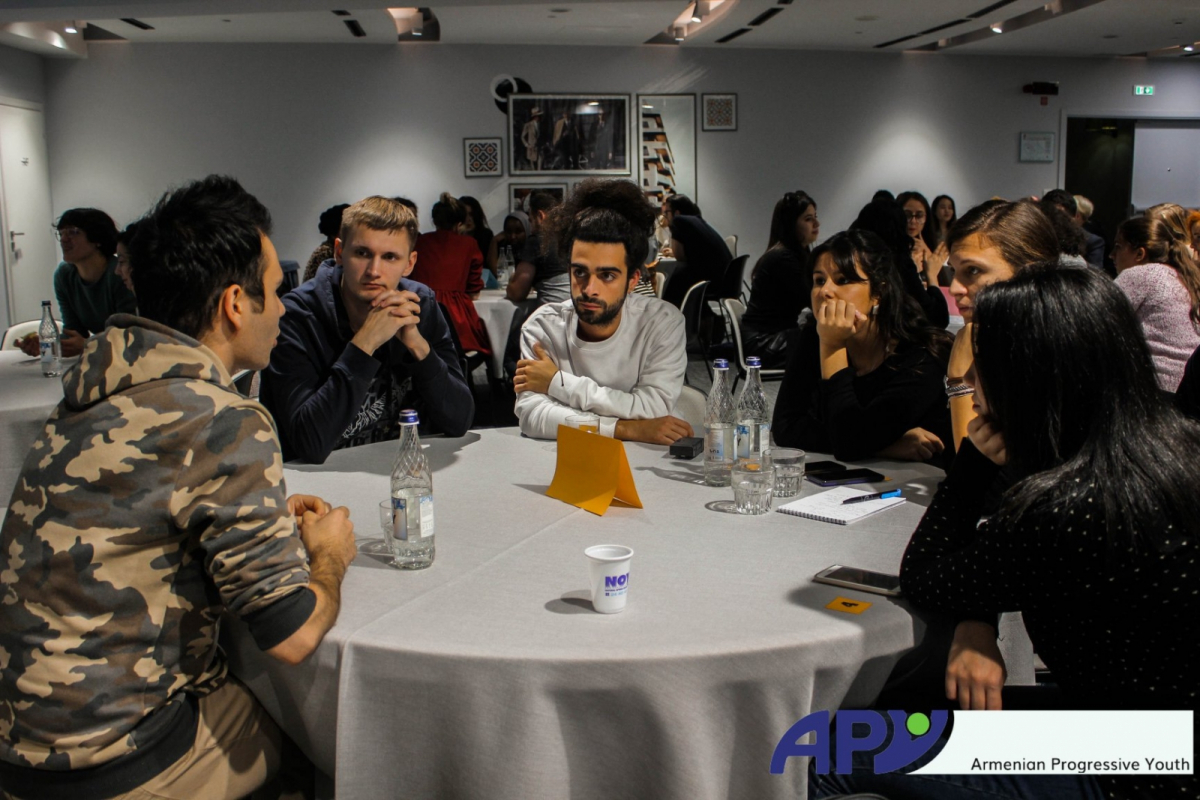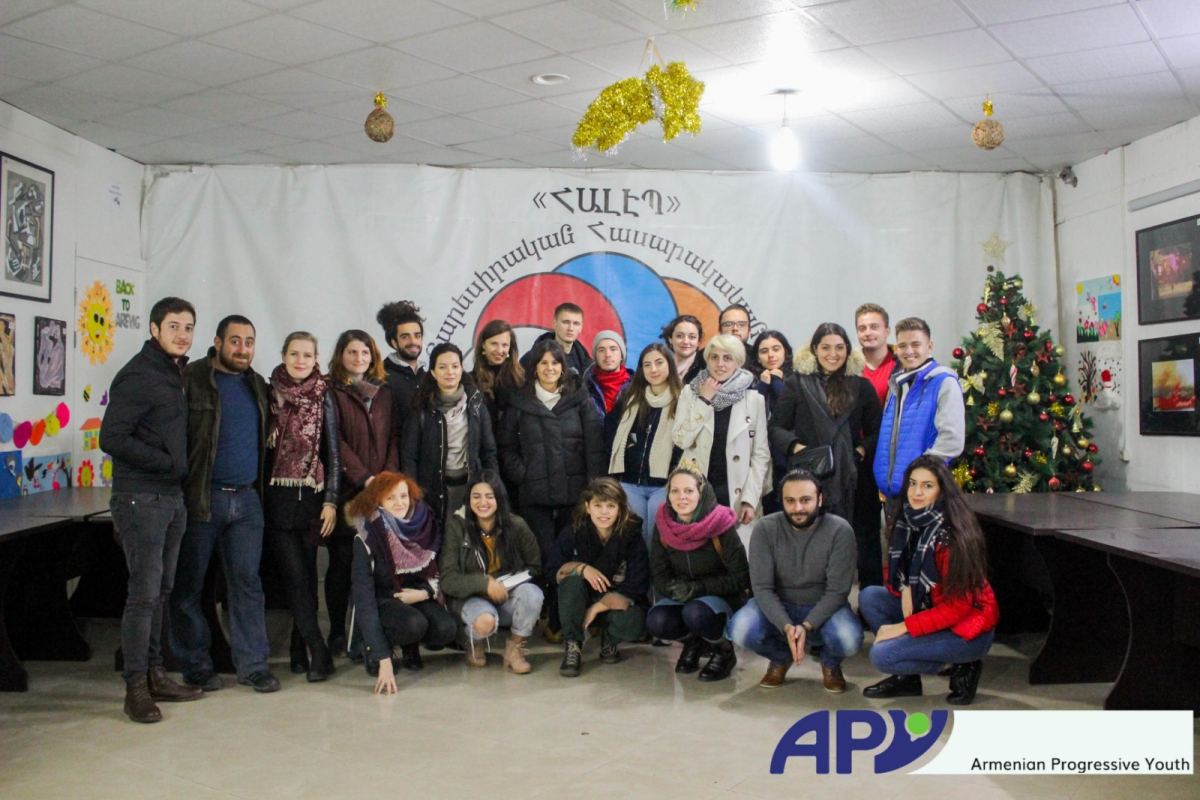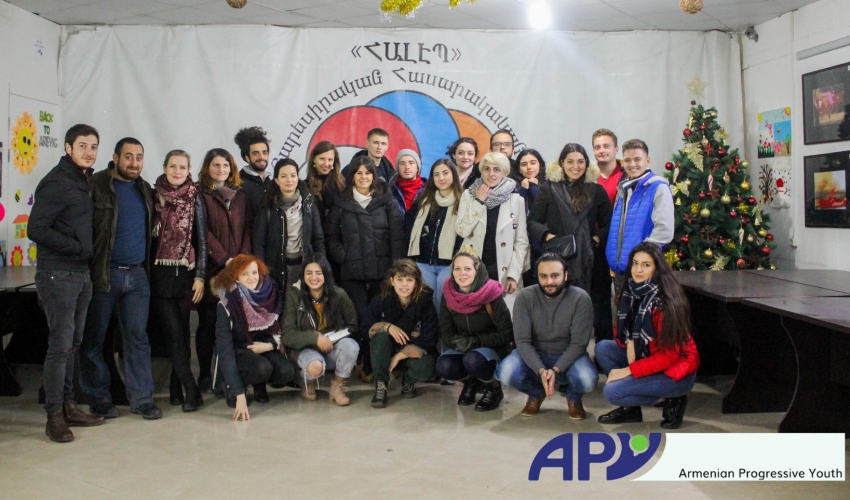From November 20 to 28, 2018, a research officer at the International Institute of Education, Culture and Diaspora Relations of Lviv Polytechnic National University, Yurii Marusyk, participated in the Erasmus + project – Building Bridges, Breaking the Walls: Managing the Refugee Crisis in Europe that was held in Yerevan (Armenia). The training course focused on radicalization, discrimination and intolerance to migrants in European countries.
The representatives of Armenia, Sweden, Norway, Finland, Italy, Moldova, Romania, Ukraine, Denmark, Turkey, Czech Republic, Greece, Germany, Greece, Germany, Georgia and Portugal participated in the training. During the event, representatives from each country presented organizations to which they were involved. Yurii Marusyk presented the activities of the Institute and Lviv Polytechnic.
There was also a presentation of the Erasmus + programme, in particular such elements as the European Voluntary Service and European Solidarity Corps, and representatives of the Armenian Office of the United Nations High Commissioner for Refugees held a presentation on the migration situation in Armenia and in the world for the training participants. In addition, project participants paid a visit to a non-governmental organization Aleppo that works on the integration of Syrian refugees in Armenia. The organizers held master classes on working with young people using non-formal learning methods and provided participants with an opportunity to conduct their own activities. Yurii Marusyk, within the framework of Open Space, conducted Our Tags workshop on migration issues and anti-immigration mood.
Participants from each country presented their researches on a history of migration, demographic picture, migration policy, integration and reintegration of migrants in their countries. The Ukrainian team presented the migration situation in Ukraine and introduced the results of the study of students’ opinion on migration under visa liberalization, conducted by IECDR, Lviv Polytechnic National University. After the reports and discussions, the participants shared their feedback about the project and learned about the next stage of the training that will take place in Sweden in 2019.
Participation in the project gave the opportunity not only to present to foreign participants and organizers the achievements of IECDR in the field of scientific research and projects, but also to establish useful relationships with representatives of foreign organizations that will facilitate future cooperation.
